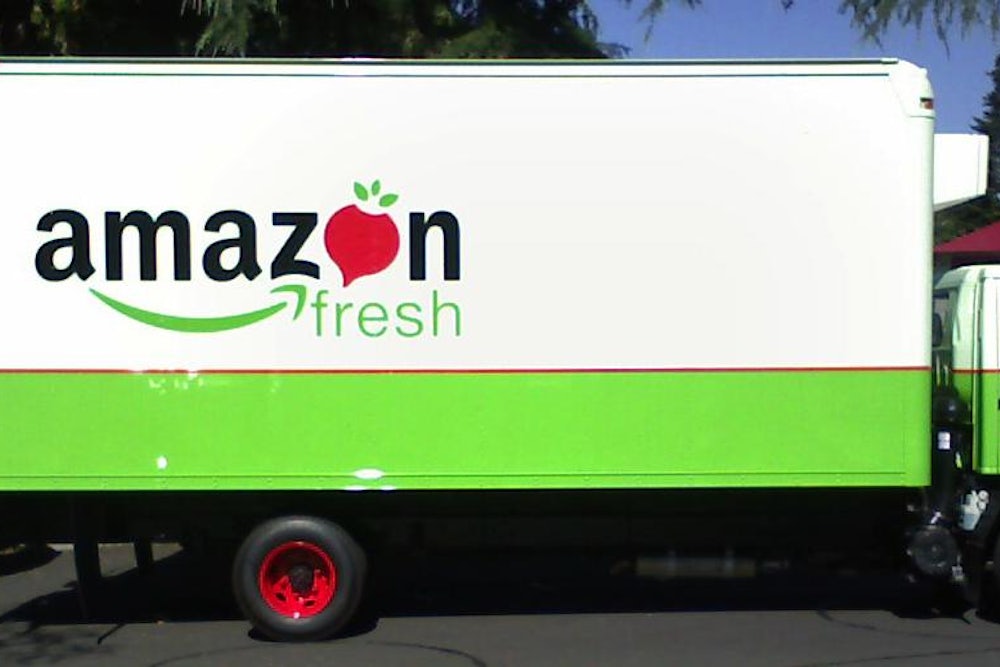Is it possible that Jeff Bezos is buying The Washington Post just for its paperboys?
In fact, a new profile in Fast Company is all about Bezos’s overarching obsession with what logisticians have long called the “last-mile problem”—the final link from distribution hubs to the end consumer. This is typically where the supply-chain efficiencies of shipping containers, warehouses, and trucking centers break down, replaced by the arduous work of getting to individually targeted doorsteps in daytime hours. For Amazon, Bezos’s solution has been to avoid the existing terrestrial networks of FedEx, UPS, and U.S. Postal Service and create its own: AmazonFresh, currently on trial in Seattle and Los Angeles, where the company serves not only as retailer but a same-day home-delivery service for other sellers, including restaurants. At the core, Amazon is looking to brand the delivery experience, with green trucks and distinctively uniformed drivers, hoping to establish “the same kind of trustworthy familiarity that fueled the rise of UPS in the 1930s,” as Fast Company puts it. "You can't persuade people that your delivery speeds are fast,” Bezos tells the magazine. “You actually have to have fast delivery speeds!"
READ: I Wouldn't Want to Work for Amazon
But UPS, like its peers in the postal and shipping sectors, never aspired to offer same-day delivery. In fact, only one industry has consistently done so: newspapers. Their delivery networks—hub-and-spoke fleets trucking bundles of newsprint into warehouses and out to retailers, with individual delivery drivers bringing single products to pre-selected doorsteps in neighborhoods they know well. The Washington Post, like nearly every newspaper in the country, already offers pre-dawn same-day delivery, a service extended to subscribers for less than the cost of buying individual copies from a newsstand.
Newspapers may become obsolete, but there is no reason that their distribution networks have to die, too. Indeed, some major innovations in the media sector involve shuttling new products via old delivery infrastructure, and vice versa. Switzerland’s national postal service, Swiss Post, has experimented with a product called MyNewspaper, a bespoke, on-demand newspaper printed in existing distribution centers and delivered each morning by postal workers. New York now hand-delivers its weekly magazine to Manhattan subscribers because it is not only faster but cheaper than putting copies in the mail.
READ: A Primer on Jeff Bezos's Murky Politics
As the distinctions between delivery, mail, and media break down, Bezos appears intent on bypassing the postal service with AmazonFresh. Why not establish a presence in the Washington market by acquiring a company that long ago conquered the last-mile problem there? And why not have the start-up costs for Amazon’s same-day delivery service in the capital effectively subsidized by the Post’s advertisers?
